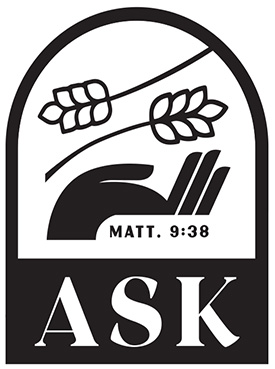The Christian Standard Church Report for 2024: Continued Growth (Part 2)
The Christian Standard Church Report for 2024 provides important historical data, current trends, and valuable insights.
By Michael C. Mack
What do God’s people do when faced with challenges like a worldwide pandemic or civil unrest? We always have a choice: immediately seek solutions or turn to God. Of course, this is not a binary choice—we can do both—but it’s vital for God’s church that we “seek first” to place our trust in him.
The coronavirus and its effects are really not all that novel. For more than four millennia, God’s people have faced challenges literally of biblical proportions, and we can learn from the choices, good or bad, they made. In this issue, we’ve included four Bible-study essays, along with corresponding application articles, that provide wisdom for how to deal with pandemics and other challenges we face today.
Jehovah Jireh is more than just another name for God. That he is a God Who Provides is a vital theological truth, and it is a critical operational principle for Christian leaders. Jesus’ concluding words of his commission, “And surely I am with you always, to the very end of the age,” is a promise of his presence and provision as we go. We lead under his authority and with all the resources he supplies along the way.
Still, when we face challenges, we tend to start with questions: “Why did this happen?” “Who is responsible?” “How can we fix this?” And, of course, a biggie, “How long will this take?” These are familiar questions these days in the world and in the church.
About 10 years ago when I was going through a personal crisis, I found myself asking, “How long, Lord?” I found solace in the fact, as I was reading through Psalms during this period, that David often asked the same question (see Psalms 6:3; 13:1-2; 35:17, as examples). I was frustrated with God’s slowness, as I perceived it—I had to wait several years for my answer to prayer. As I compare my waiting to that of God’s people in Scripture, who often waited on God for decades, even centuries, I’m deeply humbled.
In discussing David’s “How long, Lord” cry, Warren Wiersbe said, “The answer to the question is, ‘I will discipline you until you learn the lesson I want you to learn and are equipped for the work I want you to do.’” So perhaps each of us should shift our questions to “What lessons has God been teaching me through this pandemic?” and “What is the work he has equipped me to do now?”
During my period of waiting years ago, I learned I couldn’t control any of the circumstances I was in, so eventually I surrendered my ways and my timing. I decided to simply do what I knew was right (and righteous) and trust God with all my questions. It wasn’t easy at first. Like many leaders, I’m prone to want to be in control, but God was showing me that he alone is sovereign. In my waiting, as I became more dependent on him, I heard from him more clearly than ever before. I saw him answering my prayers. I now consider that time of waiting as one of the most productive seasons of my life.
As I write this at the end of June, many questions remain about COVID-19 and its lasting effects. There are many aspects of it we simply can’t control. So perhaps this is a good opportunity for us to learn, to grow, and to relinquish any presumptions of control we may have. When we do, I believe God will make us better leaders.
I’m beginning to wonder: Could this pandemic be part of God’s plan for preparing his church for future challenges, crises, and even persecutions that will also be outside of our control? How will the temporary closure of our buildings—a relatively small sacrifice in God’s overarching story—equip us for only God knows what?

We believe Jehovah Jireh is omniscient, omnipotent, and omnipresent. Why wouldn’t we look to him first and trust him to provide no matter what comes our way? He will provide—it’s in his name!
_ _ _
Just a reminder about our four-month prayer campaign called “ASK.” If you haven’t already, please join us in asking the Lord to raise up more leaders who will take his good news into the world. To join, subscribe for free to our “Daily Reading with The Lookout” email at ChristianStandard.com/newsletter. Each day (Monday–Saturday), we will include a short but specific prayer prompt.

The Christian Standard Church Report for 2024 provides important historical data, current trends, and valuable insights.
Christian Standard Church Report for 2024. This is a representative sample of our movement that provides important historical data, current trends, and valuable insights.
Forgiveness is one of the most radical and transformative principles of Christian marriage.
People need to experience purpose in their relationship with Christ and effective leaders must set goals that reflect their vision for the church in creating that purpose.
After binge listening to the Joe Rogan podcast, Tyler McKenzie offers a few insights he gained from his listening experience.
0 Comments
Trackbacks/Pingbacks